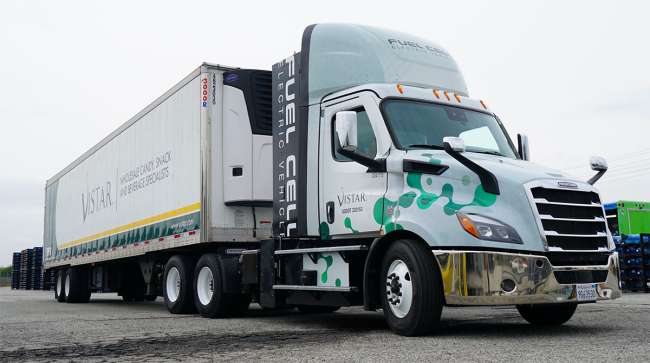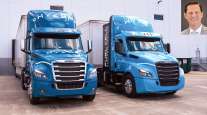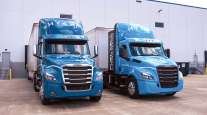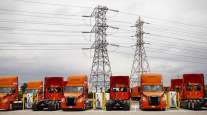Staff Reporter
Truck Maker Hyzon Mulls Sale of Part or All of Operations

[Stay on top of transportation news: Get TTNews in your inbox.]
Hyzon Motors could put up a for sale sign as the Bolingbrook, Ill.-based startup continues to hemorrhage cash, and it may begin layoffs before that.
Class 8 truck and hydrogen fuel cell system maker Hyzon hired investment bankers at PJT Partners to raise funds in the capital markets and explore selling part or all of the company after a review of operations, it said June 24.
Hyzon expected to take significant steps forward in the second half of 2024 but instead finds itself retrenching from markets other than North America.
Selling the company’s Europe and Australia/New Zealand businesses is likely to be PJT’s first order of business as part of what Hyzon said was a realignment of strategic priorities.
Efficiency, durability, zero emissions: Our CEO Parker Meeks says it best. Hyzon is determined to push the boundaries of what’s possible with #hydrogen, moving the world forward—one industry at a time. Follow us today as we provide power to move the world. pic.twitter.com/wBA2f1ZHOZ — Hyzon (@hyzon) March 12, 2024
Cost reduction also is on the slate, the company said, with layoffs or “other strategic transactions and/or measures” included in the possibilities as Hyzon seeks to slash costs and preserve cash liquidity.
In 2023, Hyzon posted a $184 million net loss compared with a $32.19 million loss in the 2022 period, the company reported March 22.
Hyzon posted a net loss of $34.23 million in the first quarter of 2024, compared with a $30.25 million loss in the year-ago period, it said May 13.
As of March 31, the company had $52.4 million in cash and cash equivalents on hand, compared with $112.3 million at the end of 2023.
Corey Cox of the Tandet Group of companies discusses how early AI adopters are beginning to harvest the latest wave. Tune in above or by going to RoadSigns.ttnews.com.
The company posted an operating loss of $30.7 million in Q1 compared with a $41 million loss in the year-ago period.
Hyzon said the revamp and likely divestments would allow the company to focus its financial resources and investments on launching Class 8 and refuse trucks powered by its 200-kilowatt hydrogen fuel cell systems, the first large fleet trials of which are set to start later this summer.
CEO Parker Meeks told Transport Topics in January that production of the Class 8 truck and fuel cell systems was set to begin in the second half of the year.
When releasing first-quarter earnings in May, Hyzon said it remained on track for production of the fuel cell systems in the second half of 2024. The company completed production of five 200-kW C-sample fuel cell systems in Q1 and five more in April.
Want more news? Listen to today's daily briefing above or go here for more info
In March, Hyzon launched a heavy-duty cabover truck for the Australian, New Zealand and European markets powered by a 200-kW fuel cell system, with the promise of deployment later this year. Those plans are now up in the air.
Hyzon previously offered a 110-kW truck to customers to trial. In December, the company delivered four trucks to Performance Food Group’s Vistar facility in Fontana, Calif., its first deliveries to its largest U.S. customer.
Richmond, Va.-based food distributor PFG operates more than 150 locations and ranks No. 5 on the Transport Topics Top 100 list of the largest private carriers in North America.
Subject to a successful 110-kW truck trial, and another with the second-generation 200-kW truck, PFG was looking to buy another 15 of the larger models.
Hyzon’s first-generation 110-kW hydrogen fuel cell electric vehicles have a range of up to 350 miles and a refueling time of 15 minutes with fast-fill dispensing.
The retrenchment to core North American markets by Hyzon amid cash struggles echoes that of fellow hydrogen fuel cell truck builder Nikola Corp. about a year ago.
In May 2023, Phoenix-based Nikola wound down its European assets and dialed back its strategy of producing battery-electric and hydrogen fuel cell trucks, pivoting to a focus on the latter.
Nikola sought to cut costs, including through 270 layoffs, 120 of which were in the U.S., as well as raising extra cash, in its case by issuing additional shares.





